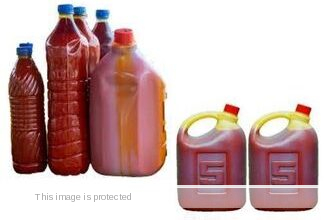Start Frozen Foods Business in Nigeria (Earn ₦2.5m Monthly)
Do you want to read the PDF plan to start a frozen foods business in Nigeria from home and online to earn money monthly, equipment needed, and basic requirements?
If YES, then this is the only post to read.
There is no specific time for frozen foods to stay before they spoil because it depends on many factors, which include the state of the food, how it is stored, and the type of frozen foods.
If the frozen food is stored in a cold room, it can last from one month to three months, depending on how frozen it is.
If they are frozen in a freezer, it will take from three days upwards.
Steps to Starting Frozen Foods Business in Nigeria
Here are the steps to start a profitable frozen foods business in Nigeria:
- Conduct market research.
- Draft a detailed business plan.
- Search for a suitable location with a steady power supply.
- Get suppliers or look for where to buy directly from importers if you want to run a wholesale frozen foods business in Nigeria.
- Get the needed capital.
- Remember to research your competitors.
- Market your goods using sound marketing strategies that target your audiences well.
Frozen Foods Business Cost
The cost of starting a frozen foods business in Nigeria will vary depending on several factors, including the size and location of your business, the type of equipment you purchase, and the level of service you provide.
Expect to spend within ₦200k to ₦2m to start your frozen foods business in Nigeria.
Equipment Needed for Frozen Food Business
Here is a list of the basic equipment you will need to start a frozen food business in Nigeria:
- Freezers.
- Packaging materials such as bags, boxes, and trays, as well as equipment to seal and label the packages.
- Ovens, stoves, mixers, and food processors.
- Delivery truck or van.
Challenges of Frozen Food Business in Nigeria
The frozen food business in Nigeria faces several challenges, including:
- Unreliable electricity supply.
- Poor infrastructure.
- The cost of purchasing and maintaining freezers and other equipment can be high, especially for small businesses.
- Competition.
- Consumer awareness.
- Businesses that sell imported frozen food products may be affected by changes in exchange rates and import tariffs.
- Businesses that sell fresh frozen food products may need to deal with issues such as spoilage and waste.
- Cold room breakdown.
- Food safety concerns.
- Poor road network.
- High cost of diesel and fuel.
Despite the challenges, the frozen food business in Nigeria is booming.
As the Nigerian economy continues to grow and more people move to urban areas, there is an increasing demand for frozen food products.
Frozen food businesses that can overcome the challenges and provide high-quality products and services will be well-positioned to succeed in this growing market.
READ ⇒ 71 Legit Ways to Earn Money in Nigeria (Online and Offline)
How to Manage Frozen Food Business
Managing a frozen food business can be challenging, but it can also be very rewarding.
Here are tips to manage your frozen food business effectively:
- Develop a business plan.
- Choose the right location that is easily accessible to your target customers and that has adequate space for your storage and retail operations.
- Purchase the right equipment to store and display your frozen food products. This may include freezers, refrigerators, display cases, and shelving.
- Source your frozen food products from reputable suppliers. Make sure that your suppliers meet all relevant food safety standards.
- Store your products at the correct temperature to ensure their quality and safety. Make sure that your freezers and refrigerators are properly calibrated and maintained.
- Handle your products safely to prevent food-borne illness. Make sure that your staff is trained on food safety procedures.
- Market your business to potential customers. This may involve advertising, social media marketing, and promotions.
- Provide excellent customer service.
- Track your inventory to ensure that you do not run out of popular products. You should also track the expiration dates of your products to ensure that you do not sell any expired products.
- Offering a variety of products will help you attract more customers and to increase your sales. Consider offering a mix of imported and locally produced frozen food products.
- Partnering with other businesses, such as restaurants and supermarkets, can help you reach more customers and to sell your products in more locations.






